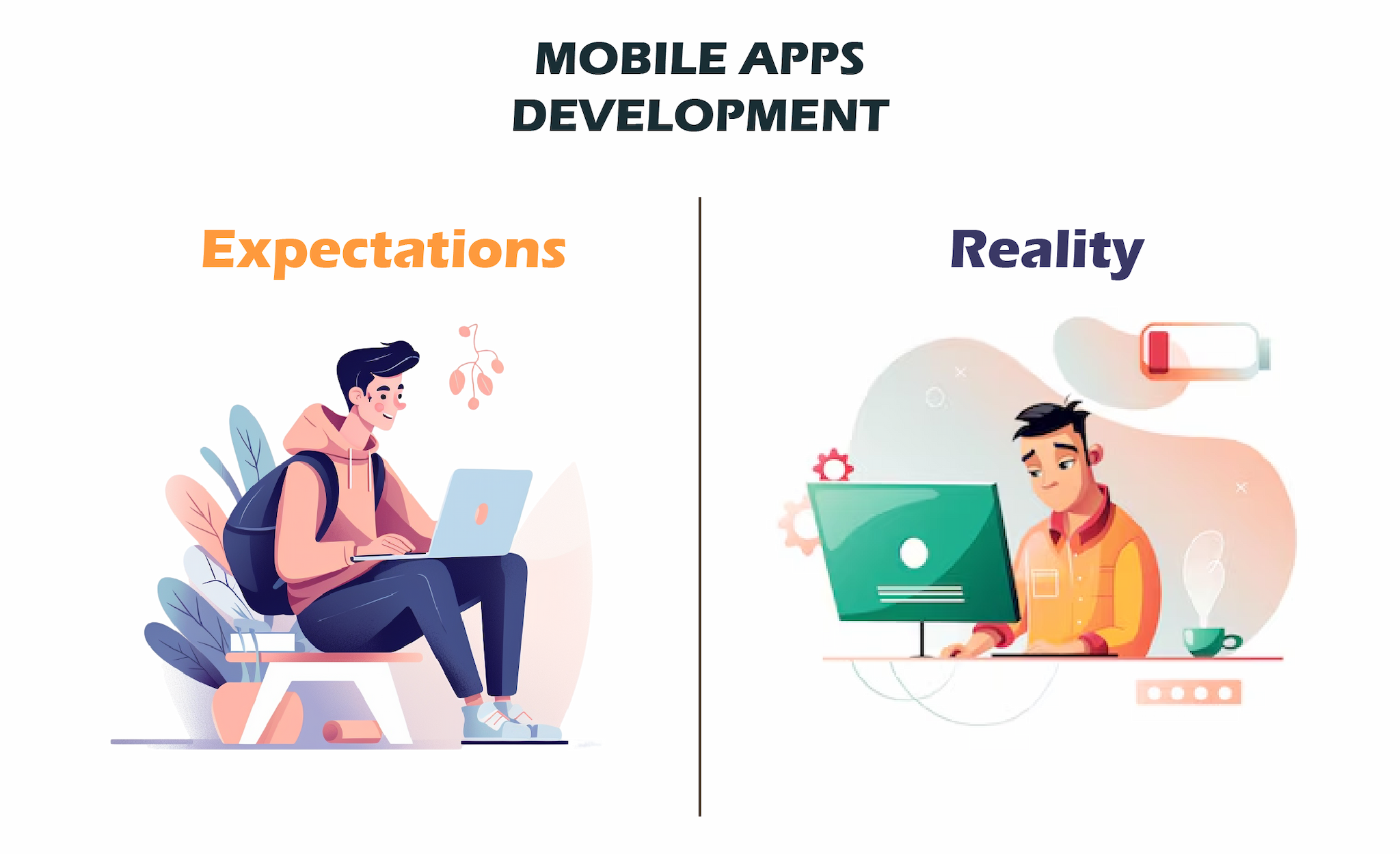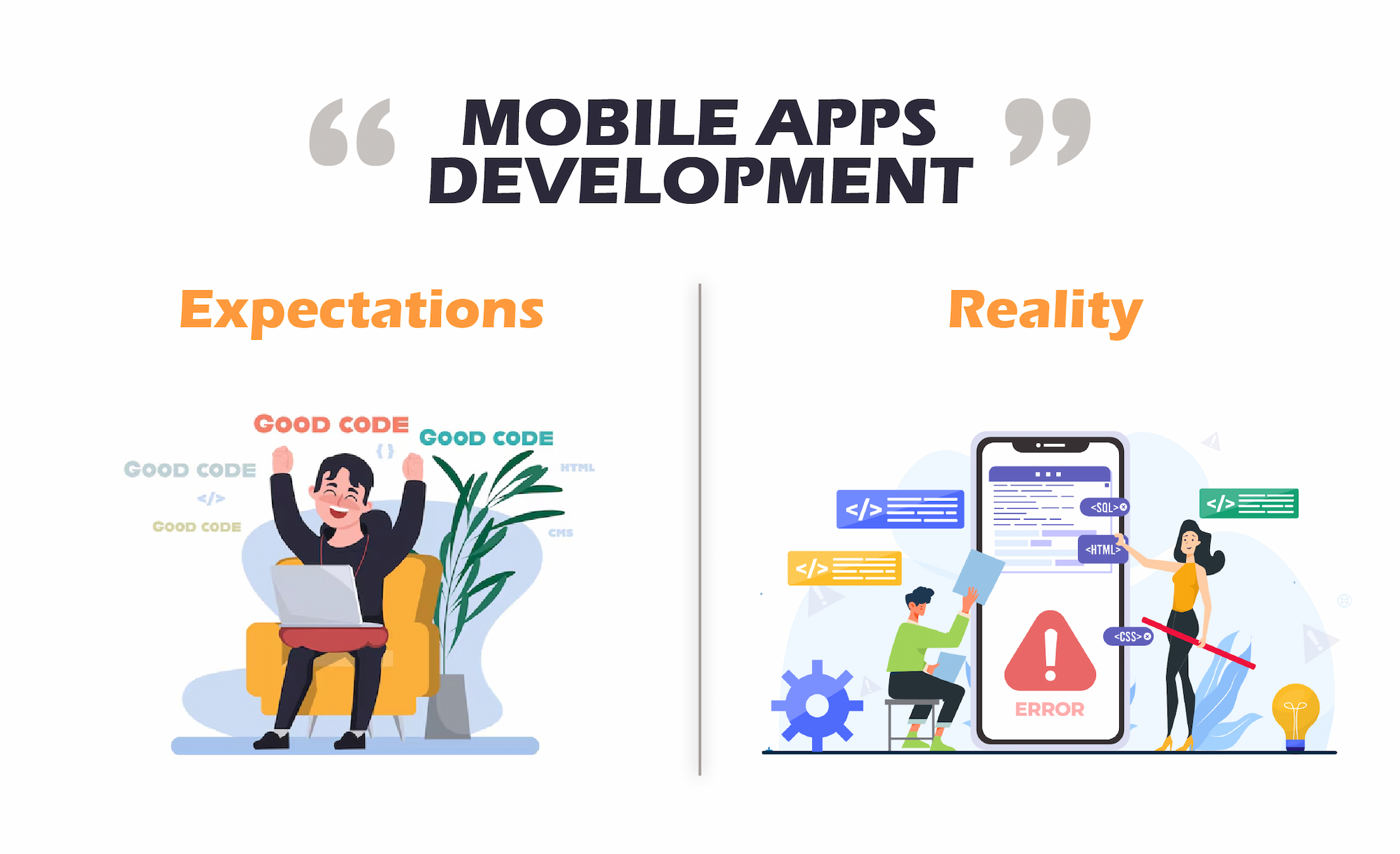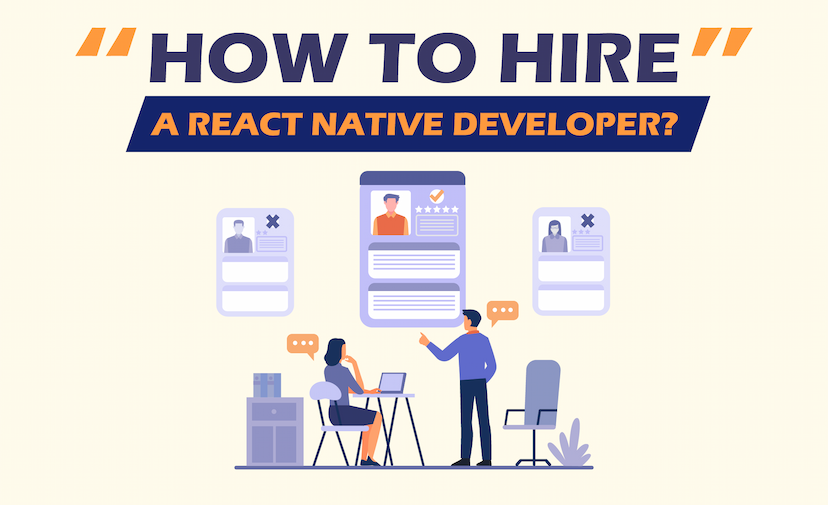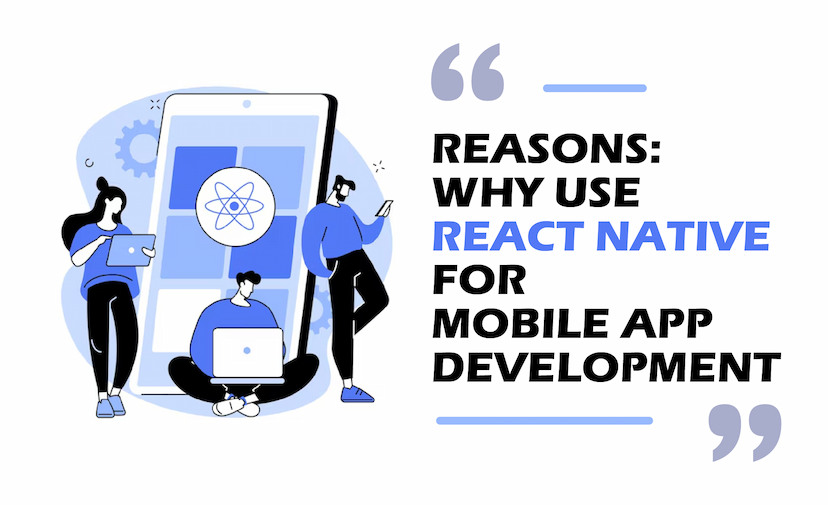
What is a Mobile App?
A software application developed especially for use on small, wireless computing devices, such as smartphones and tablets, instead of desktop or laptop computers is known as a mobile application or mobile app. Typically, these apps are designed to work on specific devices and their operating systems.
People wish for mobile apps to be flawless—fast, trustworthy, and continuously updated. However, the certainty is usually different. Mobile apps can be slow, have setbacks, and be inconsistent. They might not function on all devices or with every operating system. Further, keeping them current can be challenging and costly.

Why Do We Need Mobile Apps?
In today’s technological world, smartphones have become more universal, and having mobile apps has become necessary for many businesses to sustain themselves in the technology era. With the use of these apps, customers can easily find a suitable way to access products and services on the go, raising brand awareness and customer loyalty.
Yet, creating a successful mobile app poses challenges. Careful planning to align with customer expectations is highly required. In this blog post, we'll explore the various expectations customers have for mobile apps and guide you in meeting those needs.
Customers seek convenience and ease of use in mobile apps. They desire a customized app for their device, smoothly integrating with other phone features. To meet these expectations, prioritize a well-designed and user-friendly app.
Authenticity and stability are crucial for customer satisfaction. Users don't want an app that crashes or freezes. To meet this outlook, test the app thoroughly before launch, ensuring compatibility with the latest devices and operating systems.
Lastly, customers expect regular updates with new features and bug fixes. An outdated app that doesn't keep up with technology trends is undesirable. To fulfill this expectation, plan and execute regular updates for your app.
Get in Touch Now!
Have a word with our expert consultants about your next project to get suggestive guidance & proposal.
Mobile Apps: Expectations vs. Reality
We're all familiar with mobile apps. The user comes across an attractive advertisement for a new mobile app, sparking excitement with promises of fulfilling all requirements and more. Eagerly, users download it, ready to explore its capabilities, only to find themselves let down. The app doesn't function as expected, bombards users with numerous ads, or needs more user-friendliness than anticipated.
It's a shared experience and a source of substantial frustration in the realm of mobile apps. We can't help but raise our expectations, only to be consistently disappointed. So, what's behind this recurring pattern? Why do our anticipated experiences with mobile apps frequently fall short?
Several factors contribute to this phenomenon. Firstly, developers need to produce revenue, and advertisements provide a simple avenue for doing so. However, the drawback is that these ads can disrupt the user experience, reducing the overall enjoyment of using the app.
Secondly, not all apps are created with the same level of skill and accessibility. Design differences exist, and an app that excels on one platform may not flawlessly translate to another (specifically, the notorious challenges posed by the Android platform).
Lastly, the user who has expectations may be overly optimistic. When we experience an advertisement or read a description, we often expect perfection from the app. Yet, it's essential to recognize that no app can be flawless, as there will always be room for enhancement and refinement.
The Pros and Cons of Using a Mobile App:
The process of developing and utilizing a mobile app carries a multitude of expectations. On a positive note, it is observed as an incredible tool for promoting and selling products or services. Simultaneously, there is a concern that the app might prove to be more troublesome than its potential benefits.
When assessing the advantages and disadvantages of utilizing a mobile app, it's essential to consider the app's intended purpose. If the objective is simply to provide an extra avenue for content promotion, the investment may not be justified. Inversely, if the app is designed with specific capabilities tailored to address user needs, then the investment could prove to be highly rewarding.
Here are some possible benefits of employing a mobile app:
- Raised brand visibility
- Expanded reachability to a greater audience
- Strengthened customer engagement
- A platform that delivers special content or offers
- Expanded customer loyalty leading to repeat business
- Generates new leads and increases sales
However, certain drawbacks should be considered before embarking on mobile app development, including:
- High development costs
- Difficulties in standing out in a saturated marketplace
- The requirement of constant maintenance and updates
- The natural risk of user rejection or disengagement
- Intricacy in the creation process
- Security issues when supplying personal and banking information
Conclusion
In summary, mobile apps can substantially enhance user's lives, but it's critical to mitigate user expectations. Often, we expect capabilities beyond their scope, leading to disappointment. If users bear in mind that apps are intended to streamline aspects of their lives in small ways and avoid expecting them to handle everything, they are likely to experience much greater gratification with the outcomes.










